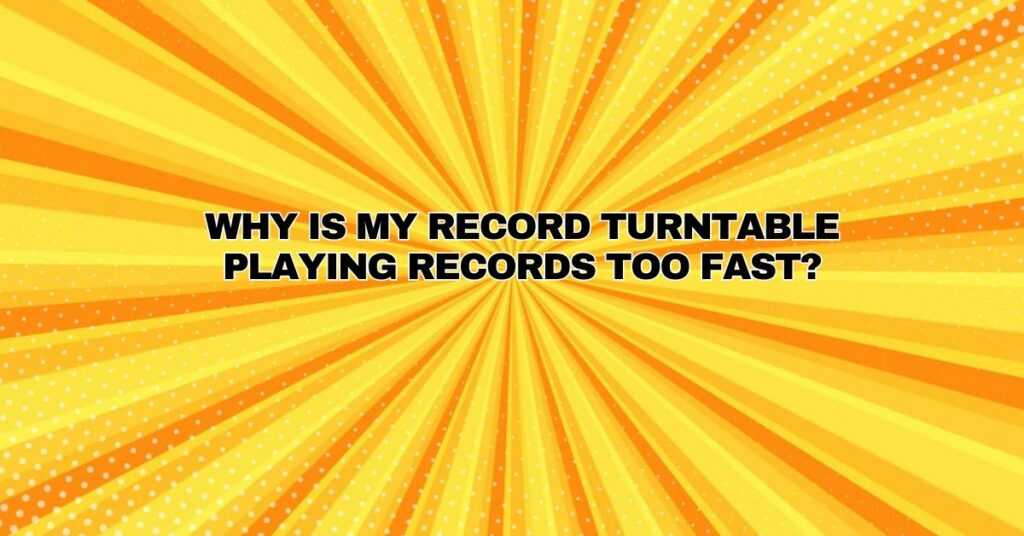Vinyl records have been cherished by audiophiles and music enthusiasts for their warm, analog sound and tactile appeal. However, occasionally, you may encounter issues with your turntable, such as records playing too fast. This problem can be frustrating, but it’s often solvable with a bit of troubleshooting. In this article, we will explore the common reasons why your record turntable may be playing records too fast and how to rectify this issue.
1. Incorrect Turntable Speed Setting
The most common reason for records playing too fast is an incorrect speed setting on your turntable. Standard vinyl records are typically designed to be played at one of three speeds: 33 1/3 revolutions per minute (RPM), 45 RPM, or 78 RPM. If your turntable is set to the wrong speed, it can result in the playback being too fast or too slow.
Solution: Check your turntable’s speed selector switch or button and ensure it is set to the correct speed corresponding to the record you are playing. The speed setting is usually indicated on the record label.
2. Belt Drive Turntable Issues
Belt-drive turntables utilize a rubber or silicone belt to transmit motion from the motor to the platter. If the belt is worn, stretched, or damaged, it can cause the platter to rotate too quickly, resulting in fast playback.
Solution: Inspect the condition of the belt. If it appears damaged or loose, it may need replacement. Consult your turntable’s manual or manufacturer for guidance on replacing the belt.
3. Direct Drive Turntable Calibration
In some cases, direct-drive turntables may require calibration or adjustment to the motor’s speed control circuitry. Over time, electronic components can drift or lose their accuracy, leading to incorrect playback speeds.
Solution: Consult your turntable’s manual or seek assistance from a professional technician for recalibration or adjustment of the turntable’s speed control circuitry.
4. Voltage and Frequency Mismatch
If you have a turntable that was designed for use in a region with a different voltage or frequency standard (e.g., 110V/60Hz in the United States vs. 220V/50Hz in Europe), it may lead to incorrect playback speeds due to variations in motor power.
Solution: Use a voltage or frequency converter designed for your specific turntable to ensure it receives the correct power supply.
5. Motor Issues
The turntable’s motor is responsible for driving the platter at the correct speed. If the motor is malfunctioning or failing, it can result in inconsistent playback speeds, including playing records too fast.
Solution: If you suspect a motor issue, it’s best to consult a professional technician or contact the turntable’s manufacturer for guidance on troubleshooting or motor replacement.
6. Mechanical Problems
Mechanical issues within the turntable’s motor or drive system can also lead to speed irregularities. This could include worn or damaged components affecting the platter’s rotation.
Solution: Seek professional repair or maintenance services to diagnose and address any mechanical problems within the turntable.
Conclusion
When your record turntable is playing records too fast, it can be a frustrating experience. However, most speed-related issues are solvable through careful inspection and adjustment. Start by verifying the turntable’s speed settings, checking the belt condition (for belt-drive turntables), and examining any potential voltage or frequency mismatches. If the problem persists, it’s advisable to consult the turntable’s manual, contact the manufacturer, or seek assistance from a qualified technician who can diagnose and resolve the issue, allowing you to enjoy your vinyl records at the correct speed and relish their analog audio goodness.


